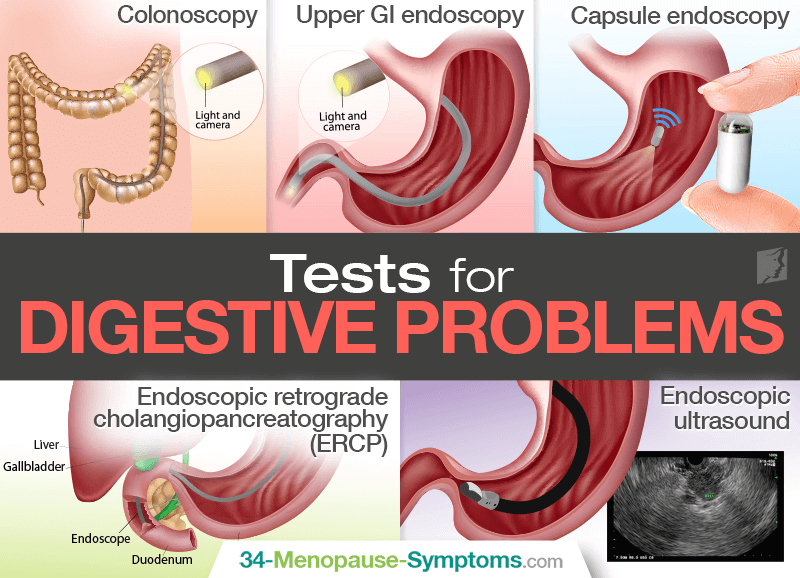While everybody gets a stomach upset once in a while, sometimes stomach problems can be more serious. If you and your doctor think something may be seriously wrong, you should have tests run to look for the signs of stomach problems that may be causing your symptoms.
Symptoms of Digestive Problems
Before looking for signs of digestive problems with medical tests, you should know the symptoms in order to know when a visit to your doctor is warranted. The most common symptoms of stomach problems are:
- Weight gain or loss
- Constipation
- Bleeding
- Diarrhea
- Pain
Symptoms like pain, bloating, and constipation can be symptoms of mild conditions, but the later symptoms are more serious and should be investigated thoroughly.
Tests for Digestive Problems
Once you believe that your symptoms warrant tests, your doctor can decide which test is best for you to look for signs of intestinal problems. There are a number of different tests that all look for signs of different conditions.
Colonoscopy. This exam looks for problems or changes in the large intestine and the rectum by inserting a colonoscope into the rectum. It is often performed regularly to screen for colon cancer in people over age 50, but can also be done to look for causes of pain such as polyps or intestinal damage.
Upper GI endoscopy. This test focuses on the upper digestive tract, and usually a scope with a camera is passed down your throat to examine this part of the digestive tract. It can diagnose problems like acid reflux and other conditions that affect the upper digestive tract.
Capsule endoscopy. Like an upper GI endoscopy, a capsule endoscopy captures images of the digestive tract to look for signs of digestive disorders and help diagnose these problems. However, rather than attach a camera to a long scope, in a capsule endoscopy the patient swallows a pill containing a camera.
Endoscopic retrograde cholangiopancreatography (ERCP). This test combines an endoscopy with x-rays to investigate disorders that affect the bile and pancreatic ducts of your digestive system, mostly centered around your liver and stomach. In this procedure, a camera scope is passed down your throat.
Endoscopic ultrasound. This method of diagnosing digestive disorders uses ultrasound technology to create a picture rather than using an invasive method. It can provide a detailed image, so in some cases it may be a preferable choice over a test involving a scope, which is more invasive.
Knowing more about how to diagnose stomach illnesses based on the tests that show signs of digestive problems can help you be more informed when you talk to your doctor. To learn more about common stomach illnesses, check out the most common digestive problems.
Sources
- Medline Plus.(2017). Stomach Disorders. Retrieved June 20, 2017 from https://medlineplus.gov/stomachdisorders.html
- Medline Plus. (2016).Abdominal pain. Retrieved June 20, 2017 from https://medlineplus.gov/ency/article/003120.htm
- Medline Plus. (2015). Digestive Diseases. Retrieved June 20, 2017 from https://medlineplus.gov/ency/article/007447.htm




